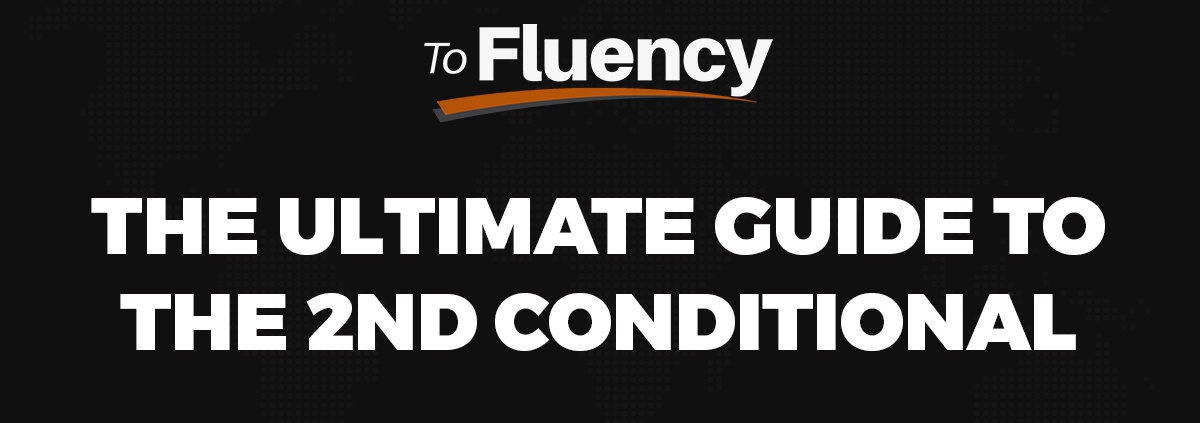The second conditional is a fun conditional to use.
Unlike the first conditional, it is used to talk about hypothetical (unreal) situations. This article (and video lesson) will explain how it is used and will give you plenty of examples so that you can understand it.
You’ll also get an explanation on how it differs from the first and the third conditional, how to use it with modal verbs, and an exercise so you can practice.
Here’s the video. Feel free to watch this first or go straight to the article below.
(Be sure to check out other video lessons on our YouTube channel!)
The Second Conditional: How to Use it and Example Sentences
This conditional is used for unreal situations.
Example: I don’t have $1,000. But:
- If I had $1,000, I would get a new bike
The time of the action can either be thought of in the present or future (not past).
Here are more examples:
- If England had better weather, it would be the perfect place to live (it doesn’t have good weather!)
- I would exercise every day if I had the time (I don’t have time to do this)
- Would you be happy if you had to work 12 hours a day?
Let’s now compare the second conditional with the first:
First vs Second Conditional:
Look at the following examples:
- If I win the lottery, I’ll buy you a house
- If I won the lottery, I would buy you a house
Do you know the difference between these sentences?
Well, the first one (1st conditional) suggests that I have a lottery ticket. I’m speaking about a specific lottery draw. I have a ticket for this Saturday’s lottery and if I win, I’ll buy you a house!
The second one (2nd conditional) is talking about this in general – in a hypothetical way – not a specific lottery event.
Here is another example of this difference:

I love parties!
- If I have time, I’ll go to the party (I might be able to go – it depends on if I have time)
- If I had the time, I would go to the party (I don’t have the time to go)
Here is a good exercise to practice this difference.
Second vs Third Conditional:
The difference between the 2nd and 3rd conditional is all about time.
Look at these examples:
- If she had time to do, she would do it
- If she had had* time to do it, she would have done it
(* had had in spoken English is reduced to had – If she had time to do it, she would have done it.)
The first example (2nd conditional) is talking about the present or future. The second example (3rd conditional is talking about the past.
Here is a great exercise that will help you understand this better.
Modals in the Second Conditional
Modal verbs are often used in the second conditional.
For example:
- If you asked him, he might be able to do it (possibility)
- If I didn’t work full-time, I could exercise more (ability)
- If you could live anywhere in the world, where would you live?
- If I were taller, I could play basketball professionally
The Second Conditional and Wish
This conditionally can be compared with using wish. Both are used for hypothetical situations.
For example:
- I wish I had more time
- If I had more time, I would…
Exercise Time!
1: If I __________ more time, I would go (to have)
If I had more time, I would go
2: If they lived here, we __________ them all the time (to see)
If they lived here, we would see them all the time
3: If I _________ President, I would make a lot of changes (to be)
If I were President, I would make a lot of changes
4: He might be able to come if you _________ him (to ask)
He might be able to come if you asked him
5: If I knew more about it, I __________ to help you (to be able)
If I knew more about it, I would be able to help you



